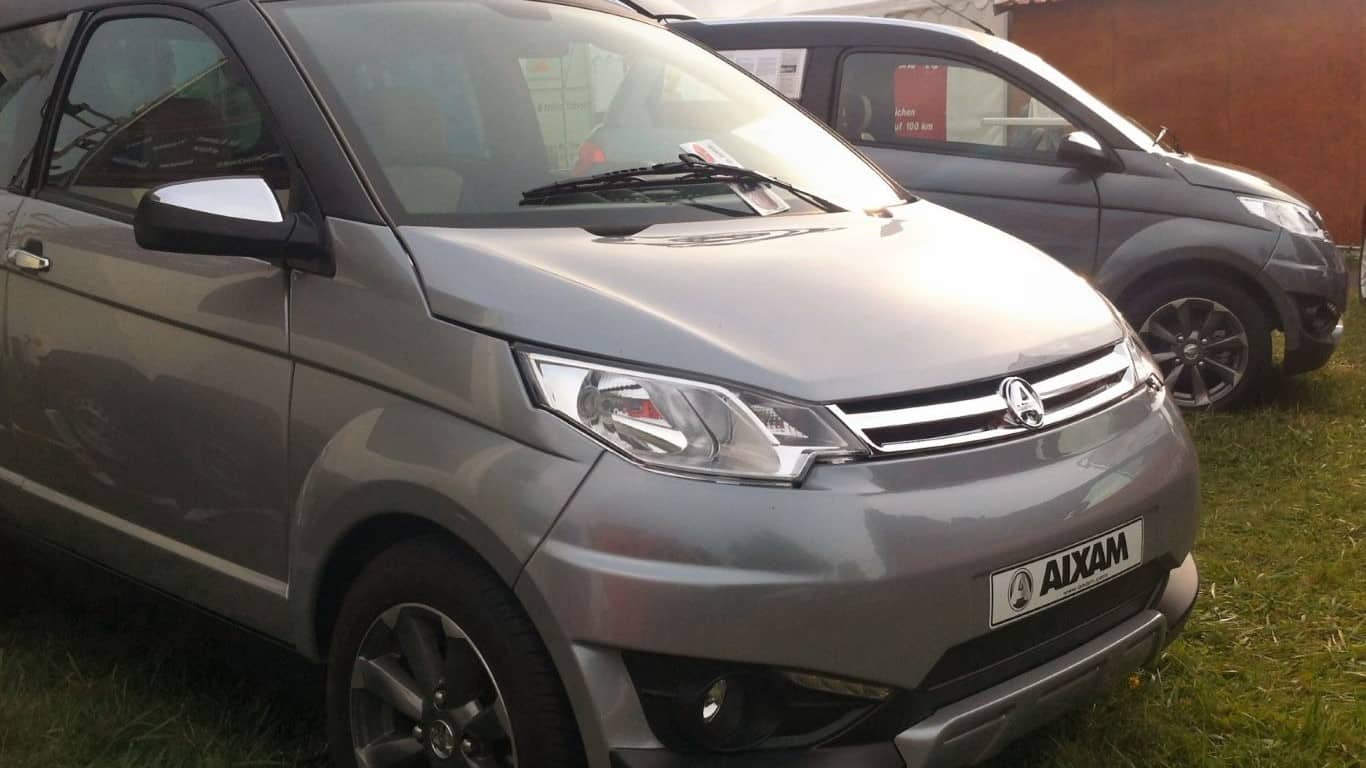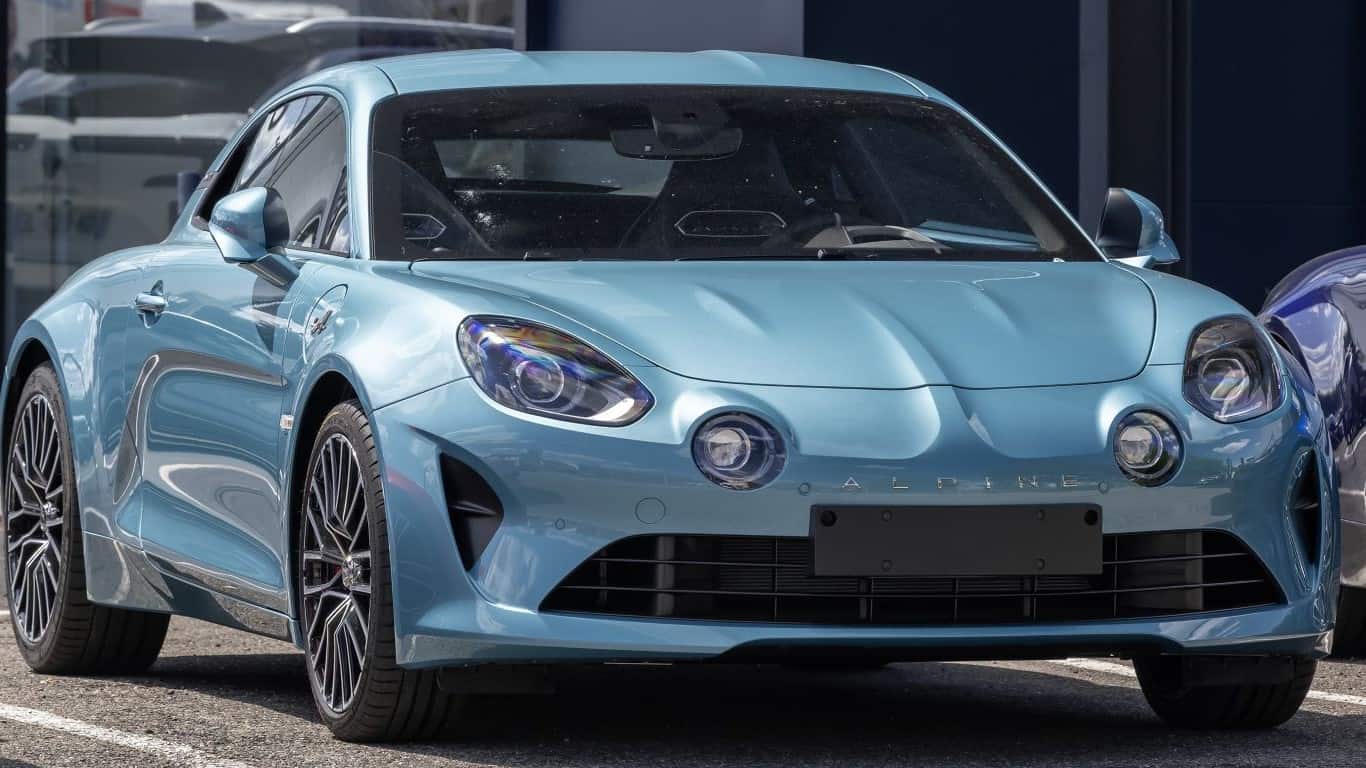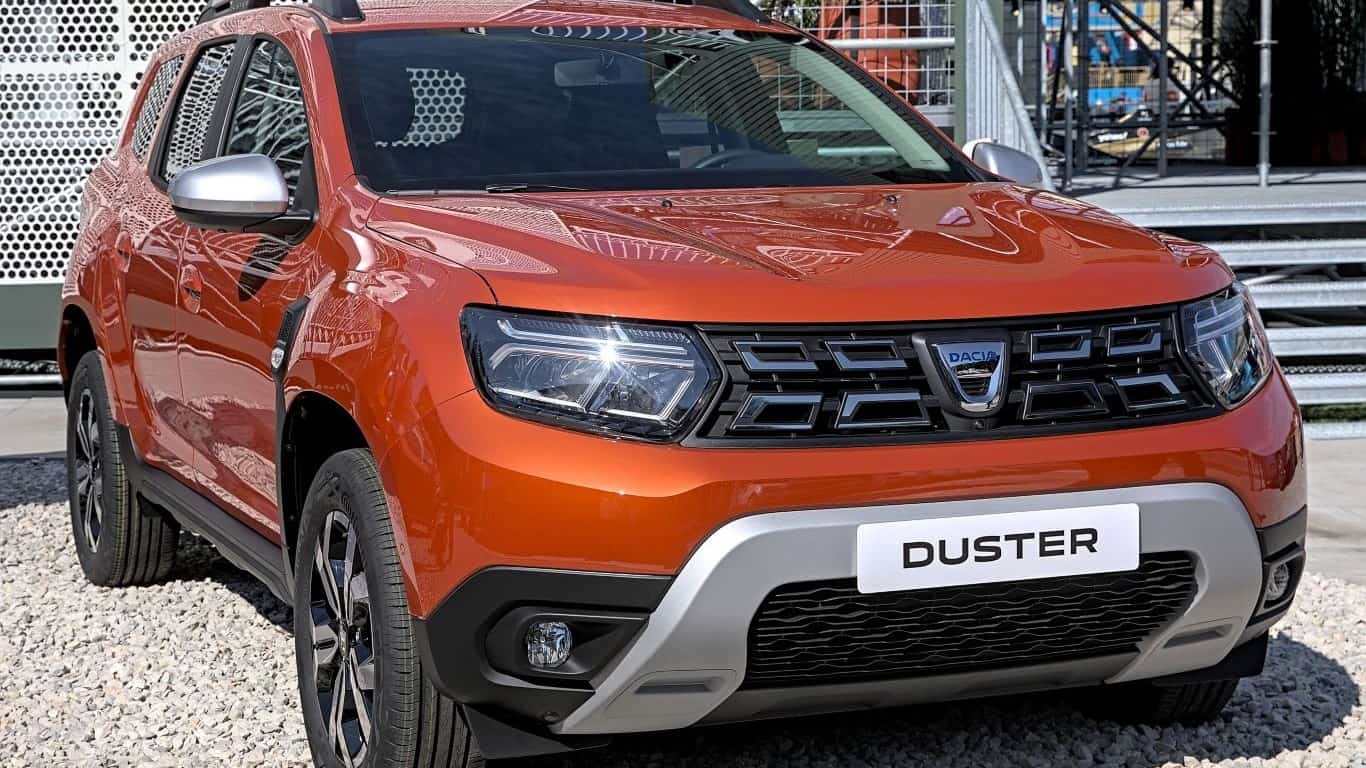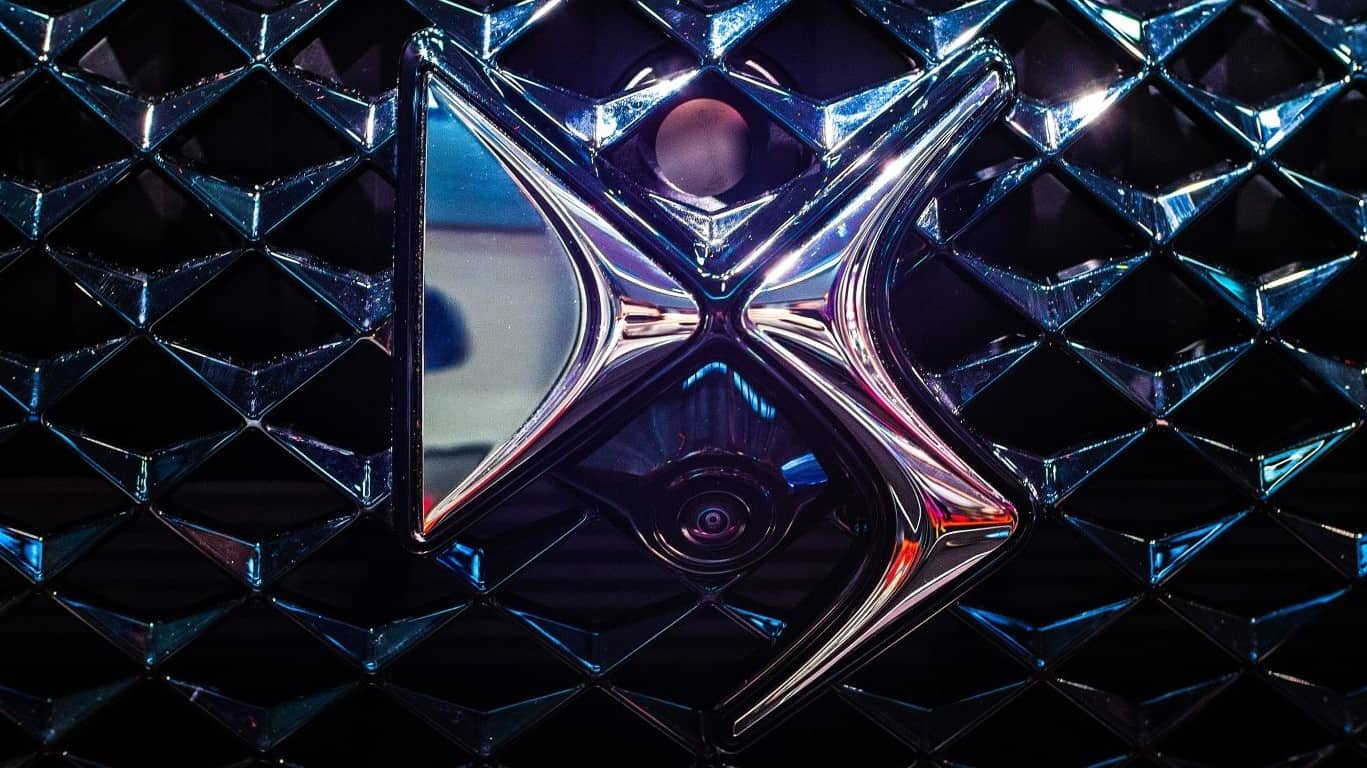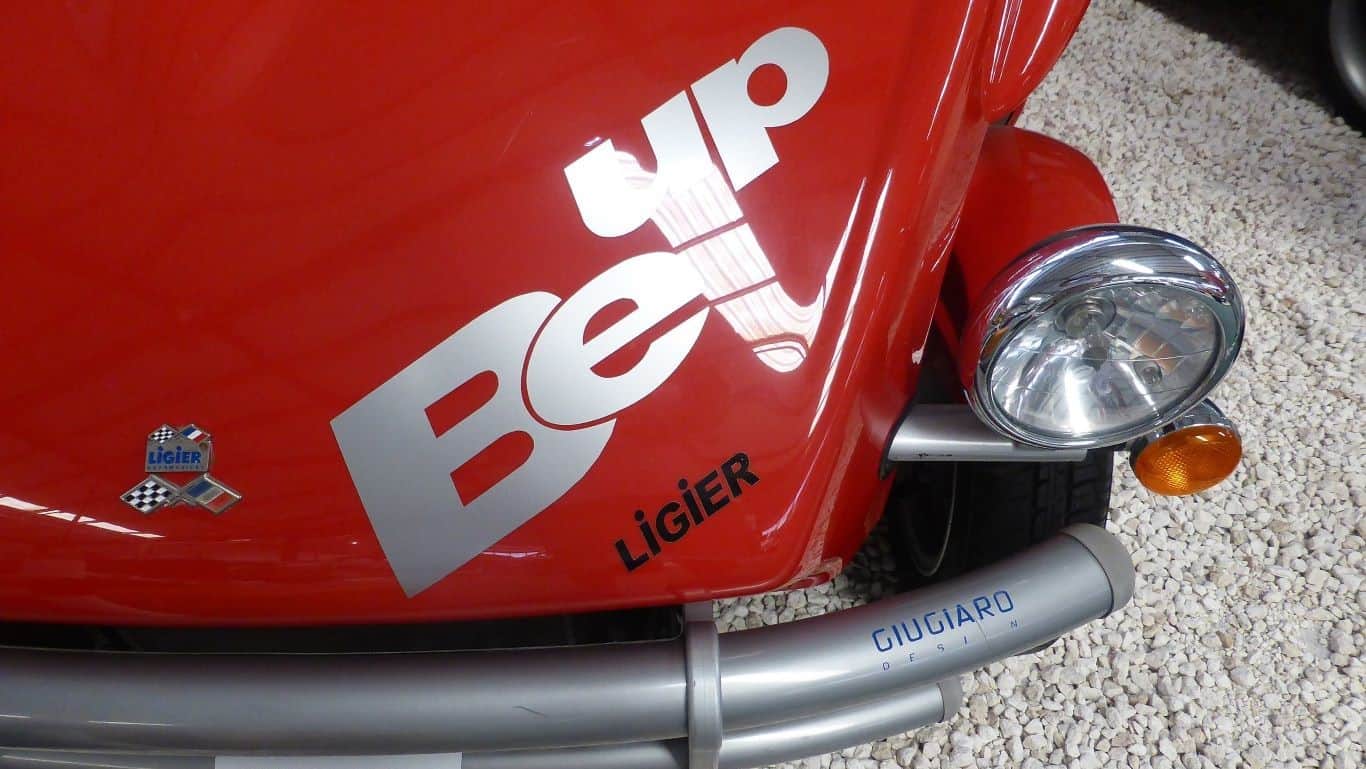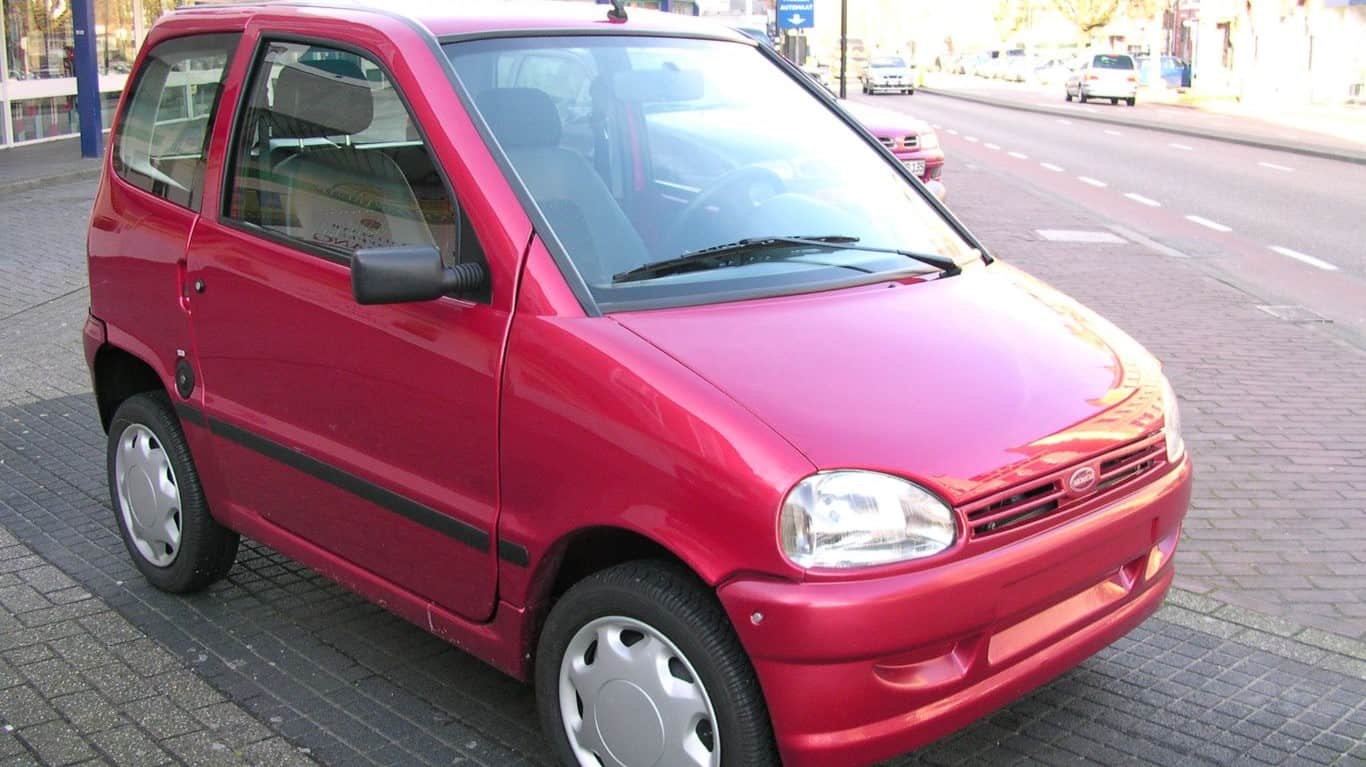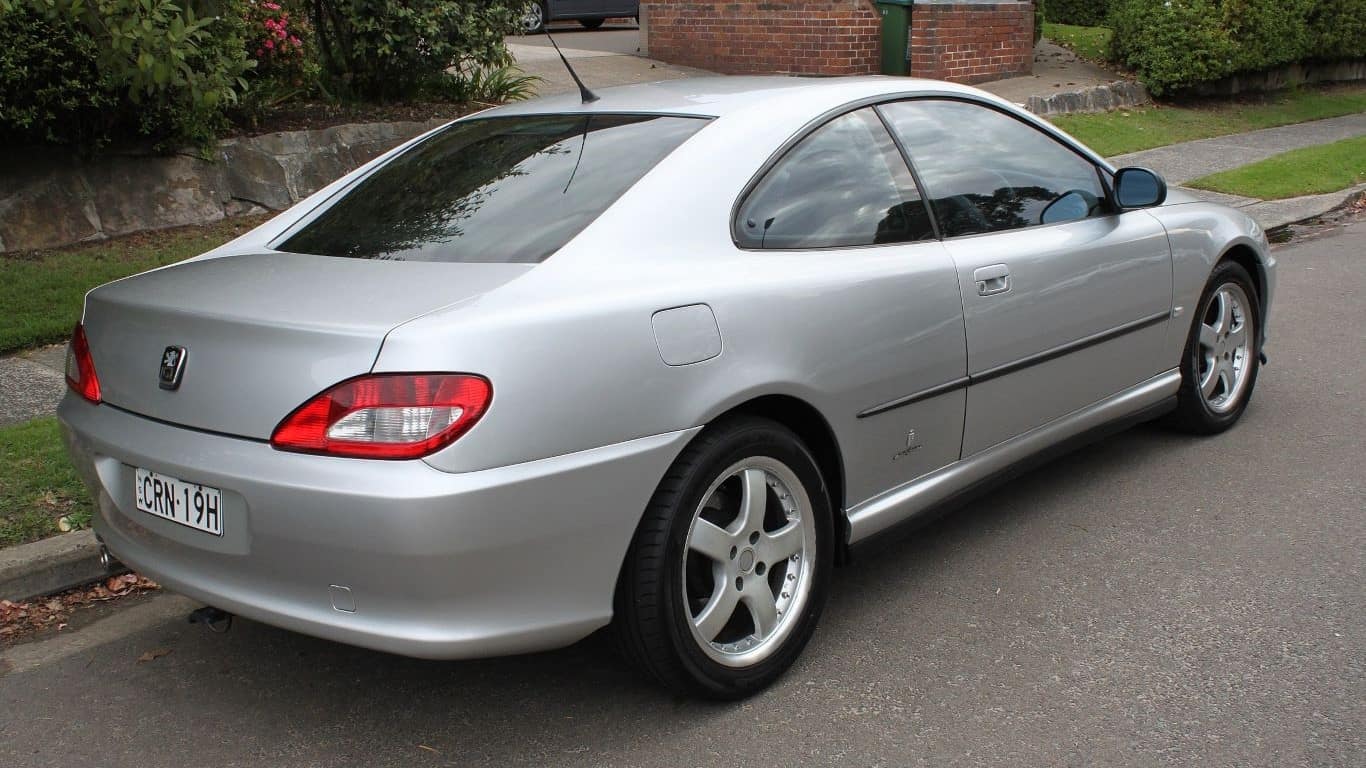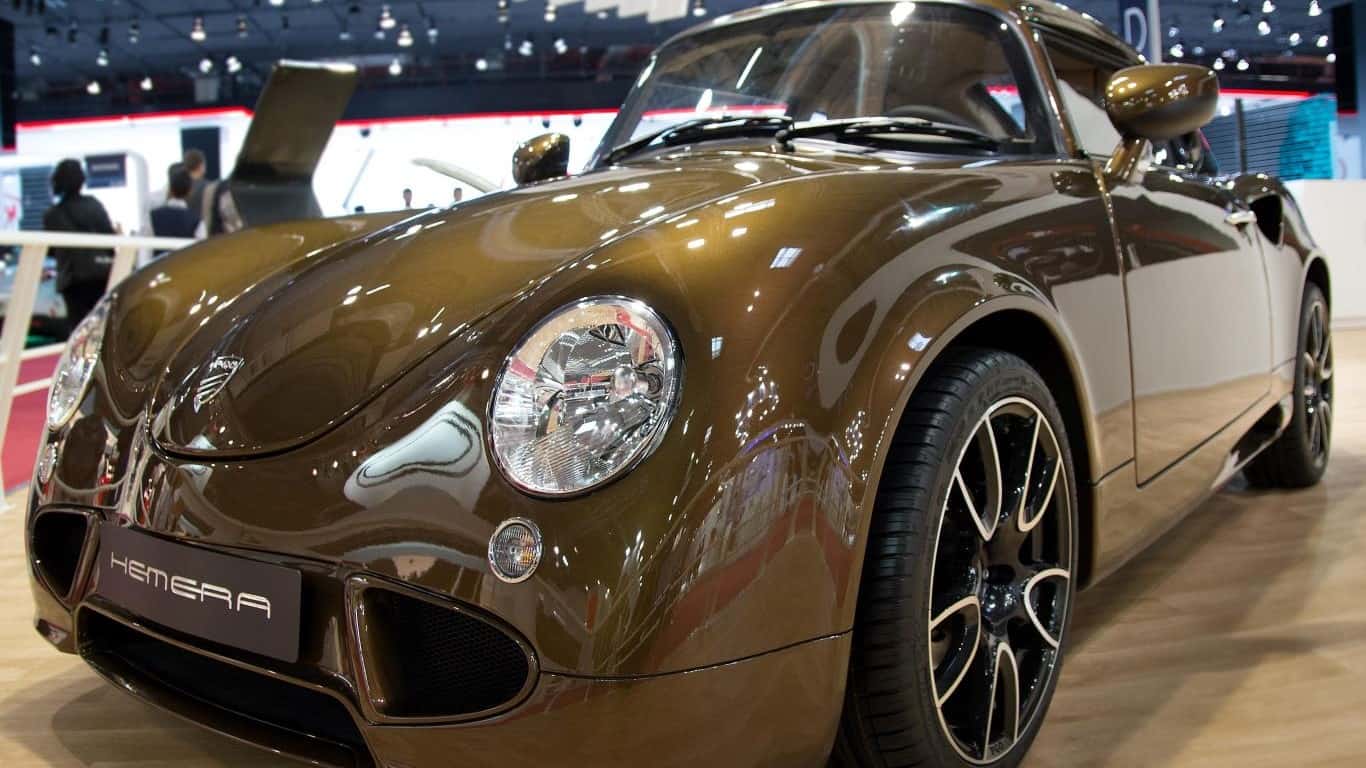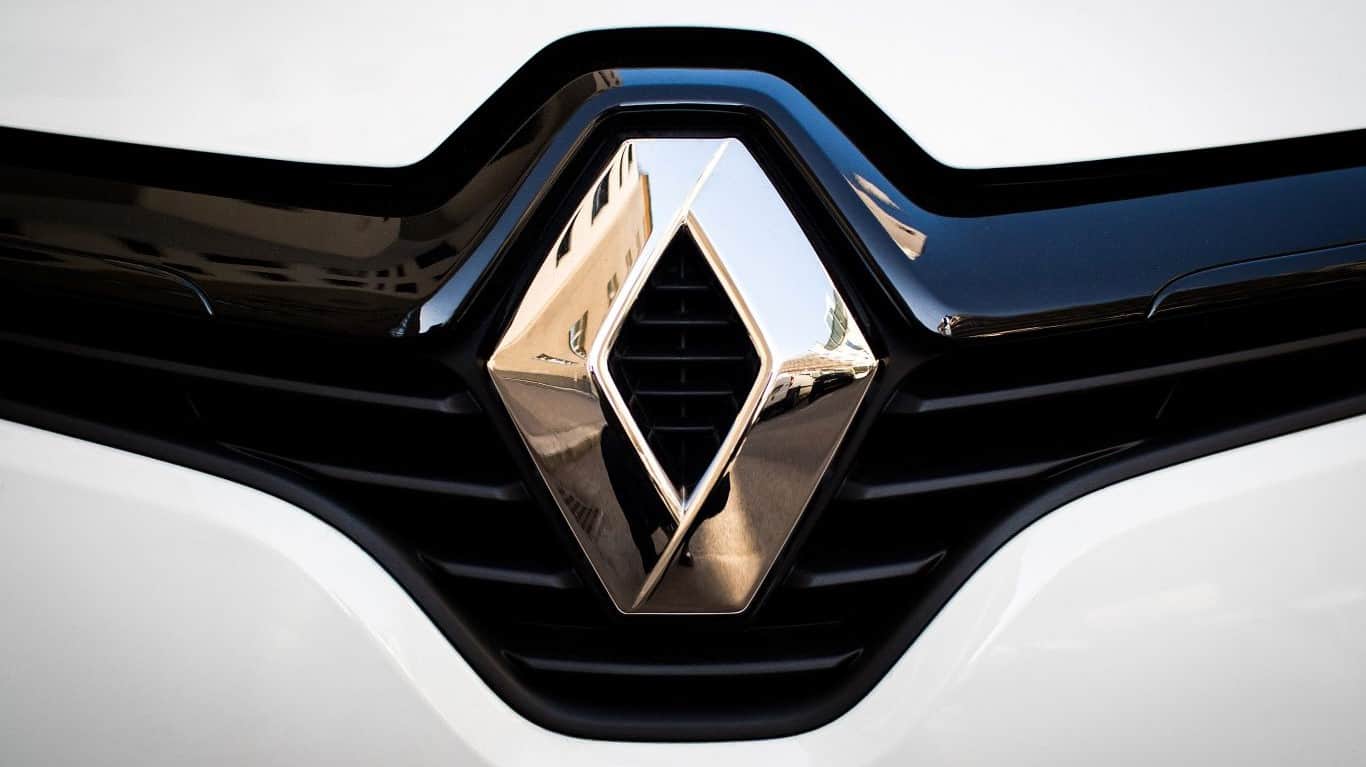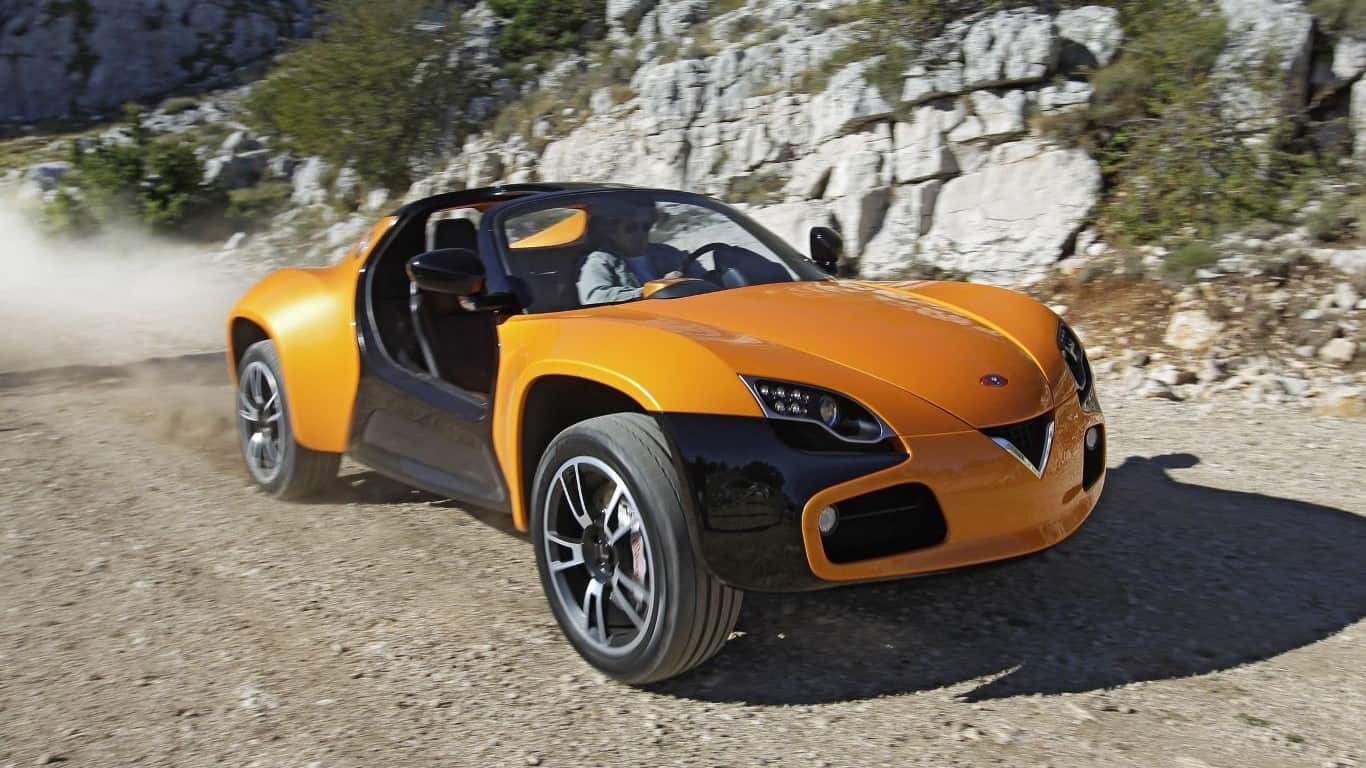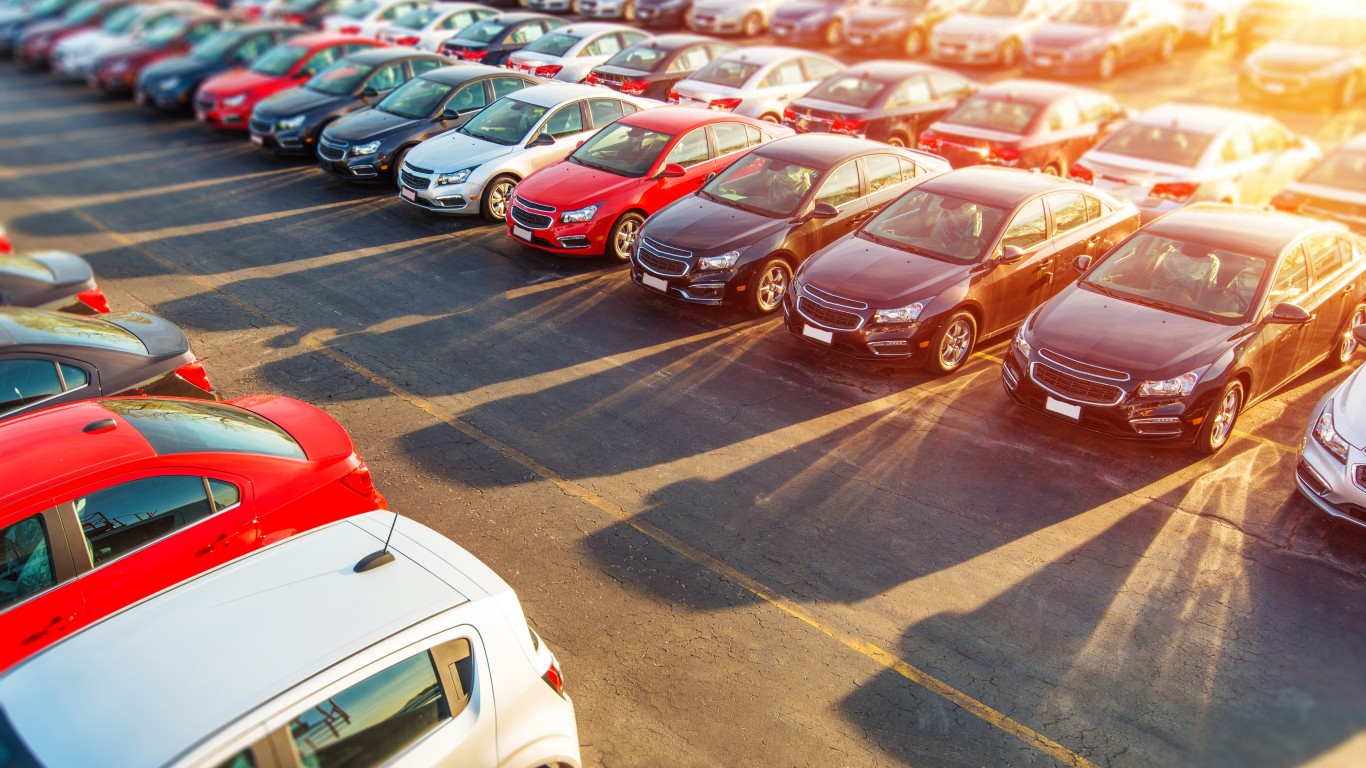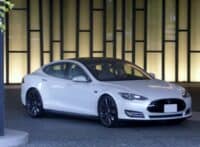
In the early days of the automotive industry, France was among the manufacturing pioneers, producing some of the most advanced vehicles and boasting the world’s largest car market. That, of course, changed in World War II. Though the French auto industry is again one of the largest in Europe and the world, as well as a major contributor to the country’s economy, French car brands have had virtually no sales in the North American market in decades. (These 11 cars are still mostly made in America.)
The largest automakers in France are Stellantis and Renault. The former owns the renowned French brands Citroën and Peugeot, as well as formerly Detroit-based Chrysler. Renault, meanwhile, owns several brands and has close ties with Japanese auto giant Nissan. Other manufacturers in France include companies with long histories, like Bugatti, and some that are relatively young. They produce a wide variety of automobiles, from microcars to supercars, as well as many other types of vehicles. And the French automotive industry has strong ties and a long association with the auto racing world.
Here are the current French automobile brands.
Aixam
- Founded: 1983
- Parent/owner: Polaris Industries
- Known for: Small cars
Vehicles from this French automobile manufacturer are particularly popular in France and Italy but can be found throughout Europe, as well as in Asia and South America. Aixam is known for its subcompact, lightweight fuel-efficient vehicles, including quadricycles and electric vehicles. In some regions, these vehicles do not require a driver’s license to operate. On average, the company produces more than 18,000 vehicles a year.
Alpine
- Founded: 1955
- Parent/owner: Renault
- Known for: Racing and sports cars
Renault purchased this brand in 1973 and merged it with its own sports car unit. Though production of Alpine-badged models ceased in 1995, the Alpine brand was relaunched in 2017 and again merged with the Renault sports car group in 2021. More than 3,500 of its vehicles rolled out in 2022, up from around 1,500 in 2020. A mid-size electric crossover and a large electric SUV are expected to be the brand’s first cars sold in America.
Bugatti
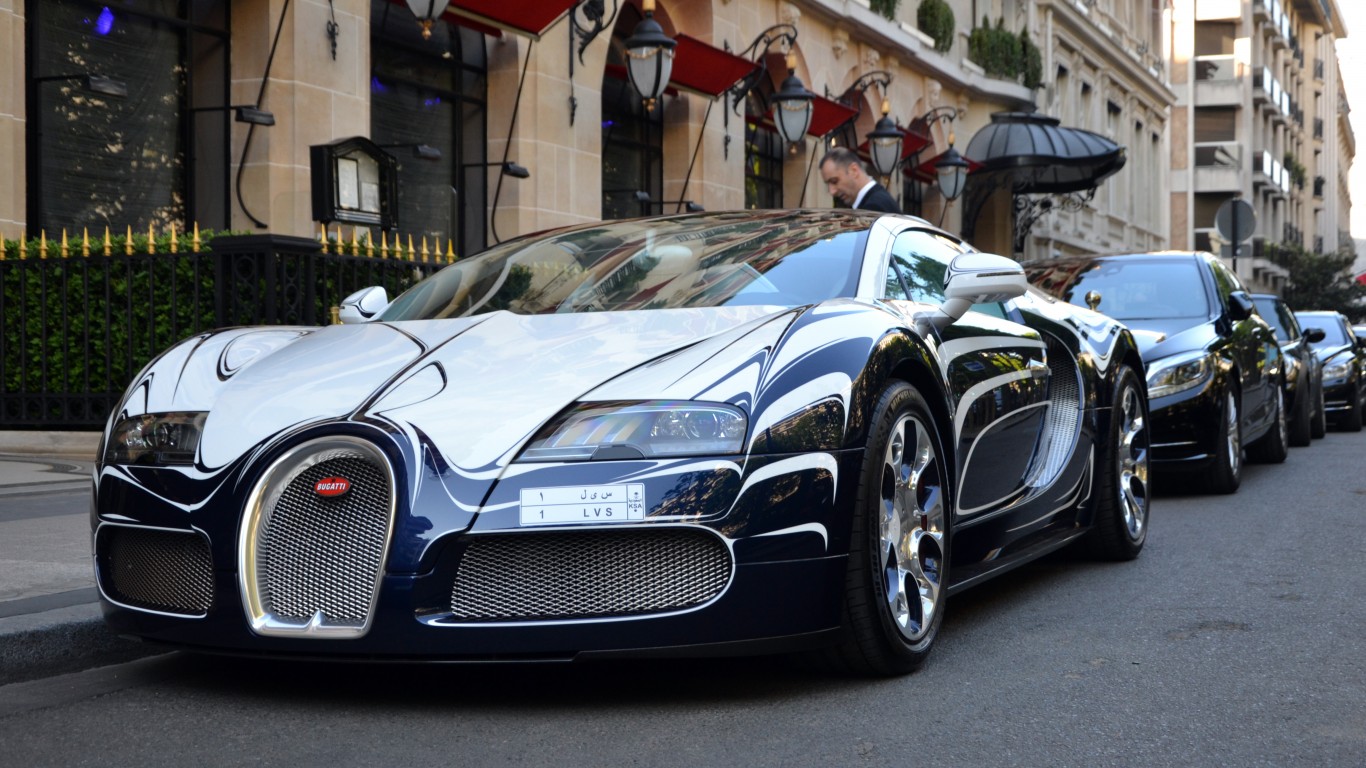
- Founded: 1909
- Parent/owner: Volkswagen
- Known for: Luxury cars
Volkswagen acquired the Bugatti brand in 1998, and its first concept car debuted at the Paris Auto Show that year. The first regular-production vehicles began to roll out in 2005 from its Molsheim, France, factory. Production vehicles include the Veyron, Chiron and Divo supercars. Only 500 or fewer units of the first two have been made, and less than 50 of the latter, which are valued at an estimated $5.4 million each.
Citroën
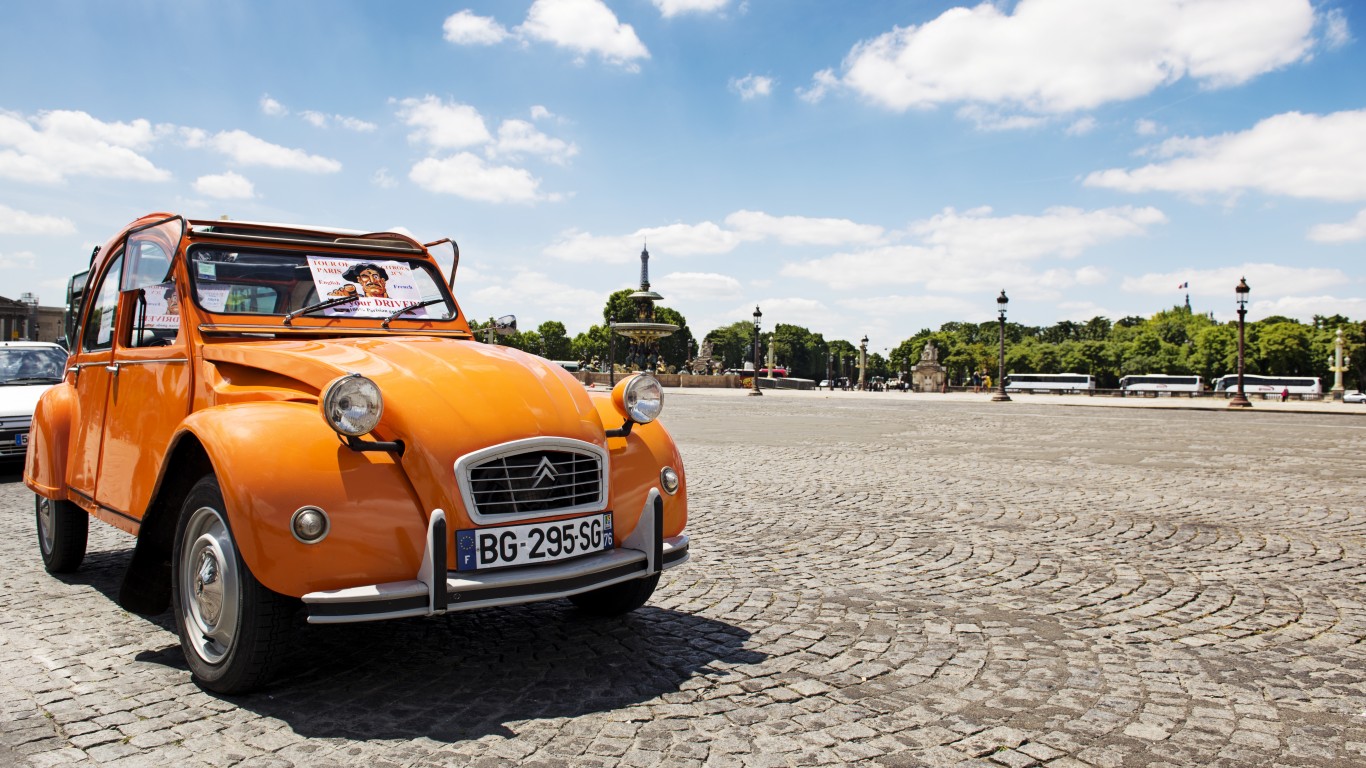
- Founded: 1919
- Parent/owner: Stellantis
- Known for: Mass-market vehicles
Long known for innovation, Citroën introduced the world’s first mass-produced cars with front-wheel drive and four-wheel independent suspension. It also had the first mass-produced car with modern disc brakes and introduced swiveling headlights in several of its models in 1967. The current lineup of this famous French car brand includes sedans, minivans, convertibles, hatchbacks and electric cars. Citroën produced over 535,000 vehicles in 2020.
Dacia
- Founded: 1966
- Parent/owner: Renault
- Known for: Mass-market vehicles
This company began as a Romanian car manufacturer but was acquired by its current owner in 1999. In 2021, Dacia sold almost 538,000 passenger and commercial vehicles in Europe, North Africa and the Middle East. Its vehicles have a reputation for being cheap and reliable, and they are still made at its Romanian factory, as well as another in Morocco.
DS Automobiles
- Founded: 2009
- Parent/owner: Stellantis
- Known for: Luxury cars
This premium French car brand was spun out of the Citroën brand in 2014. Its tagline of “Spirit of Avant-Garde” is exemplified by the aerodynamic, futuristic body design and the unorthodox and innovative technology. Less than 41,000 DS Automobiles vehicles were produced in 2020, and they sell primarily in Europe and China. The company recently announced that starting in 2024 all models produced will be “exclusively 100% electric.”
Ligier
- Founded: 1968
- Parent: Everspeed
- Known for: Small cars
This company was founded by a former race car driver, and it sponsored a Formula One racing team from 1976 to 1996. The company changed its focus from making racing cars to microcars after the energy crisis of 1973. It is now Europe’s largest manufacturer of drivers-license-exempt vehicles. The company also produces a line of quad bikes and off-road utility vehicles, and its EZ10 is a self-driving shuttle bus designed for light city transit.
Microcar
- Founded: 1984
- Parent/owner: Ligier
- Known for: Small cars
Microcar initially was a division of a sailboat manufacturer, until it was purchased by its current owner in 2008. Like Ligier, Microcar is a producer of quadricycles, or license-exempt vehicles. However, the brands retain their separate identities and production facilities. Microcar began producing electric vehicles in-house in 2009. Note that the market for microcars from all manufacturers (including Daimler, General Motors, Nissan and Toyota) is expected to approach $60 billion by 2030.
Peugeot
- Founded: 1810
- Parent/owner: Stellantis
- Known for: Mass-market vehicles
This renowned French car brand is considered by some to be the oldest in the world, though the company got its start as a tool and bicycle maker. It produced its first automobile in 1889, a three-wheeled, steam-powered vehicle. The company merged with Citroën in 1975 and produced the now-defunct brands Simca and Talbot. In 2021, it merged with Fiat Chrysler, and the company was named Stellantis. Under the Peugeot brand, the best-selling model is the 208, a small, sporty five-door hatchback that is highly rated for its dependability.
PGO
- Founded: 1985
- Parent/owner: Al-Sayer
- Known for: Sports cars
This tiny French manufacturer is known for its exclusive series of retro-styled premium sports cars made to order. In 2005, PGO fell under the controlling interest of the Kuwaiti holding company Al Sayer Group, which greatly increased its funding. Now, its three models are the Speedster II, Cévennes and Hemera, all built in the same factory. They are said to resemble a post-war Porsche 365, but with a thoroughly modern interior and internals.
Renault
- Founded: 1899
- Parent/owner: Renault
- Known for: Mass-market vehicles
Renault is France’s largest manufacturer and exporter of motor vehicles and one of the country’s most prominent corporate brands. Its best-selling cars in Europe are the Clio subcompact and the Captur small crossover, with over 300,000 and 200,000 in annual sales, respectively. The company’s largest stakeholders are the French government and Nissan. But Renault also owns a sizable stake in Nissan.
Venturi
- Founded: 1984
- Parent/owner: Gildo Pallanca Pastor
- Known for: Luxury vehicles
Founded by French engineers, the company now is headquartered in Monaco. The current owner purchased the company out of bankruptcy in 2000 and changed its focus to building electric luxury sports cars. It produces only about 10 vehicles per year. In 2022, the company set its sights even higher. One of its partners is collaborating with Elon Musk’s SpaceX to develop a rover for use on the moon.
It’s Your Money, Your Future—Own It (sponsor)
Retirement can be daunting, but it doesn’t need to be.
Imagine having an expert in your corner to help you with your financial goals. Someone to help you determine if you’re ahead, behind, or right on track. With SmartAsset, that’s not just a dream—it’s reality. This free tool connects you with pre-screened financial advisors who work in your best interests. It’s quick, it’s easy, so take the leap today and start planning smarter!
Don’t waste another minute; get started right here and help your retirement dreams become a retirement reality.
Thank you for reading! Have some feedback for us?
Contact the 24/7 Wall St. editorial team.
